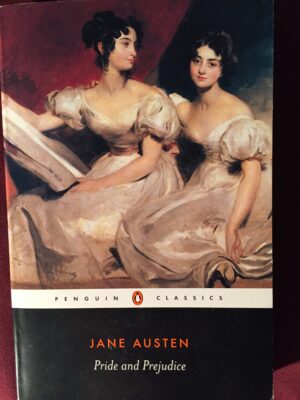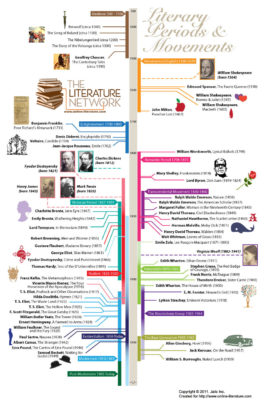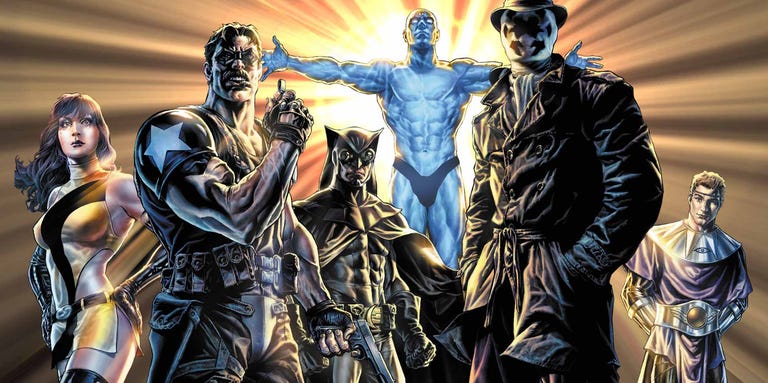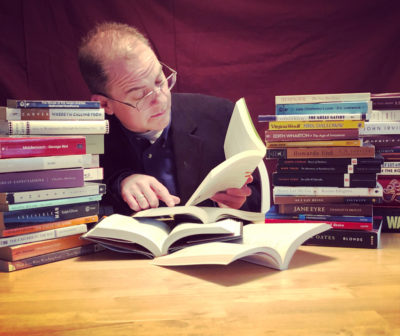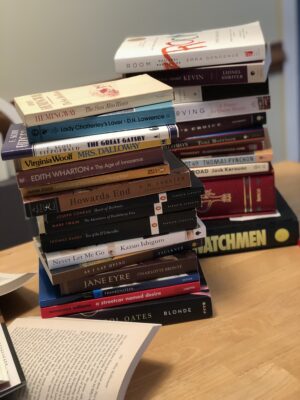Every so often, a pop culture phenomenon emerges that so deeply impacts the formative minds of young men that it completely reshapes the way they perceive the world around them. When Alan Moore’s Watchmen arrived on shelves back in 1986, the elusive author likely had no idea that his 12-issue DC series would have such a lasting influence among comic book fanboys. But, with HBO’s recently announced show from Damon Lindelof making big stories across the web, the nearly half-a-century frenzy around Moore’s anti-establishment morality tale is likely to incite the fanboy zeitgeist once again, like a gigantic exploding squid monster in the center of New York City.
The brutal superhero pastiche has been relevant for quite some time, but what’s astonishing is how something so explicitly anti-violence could become so embraced by a community that’s increasingly aggressive, right-leaning, and masculine. In July of 2015, Ted Cruz famously listed Rorschach, the series’ most grizzled, sociopathic antihero, as one of his top five favorite superheroes—and that’s just the tip of the iceberg for a community of far-right, red-pill dudes who look to the deplorable detective as an icon for morality and patriotism.
It’s not hard to understand why entitled young men see themselves in Rorschach, a character who was tormented as a young boy, reviled by his peers, and forced to turn to vigilantism to achieve his goals. But any intelligent reader of Watchmen can see, quite on the surface level, that Moore is not seeking to glorify violence or vigilantism in his series at all.
The series has its missteps, especially in its depiction of sexual abuse, but overall Moore seems overtly concerned with construing a deadly warning to readers, detailing the dangers and disturbing implications of overpowered men rather than reveling in the frivolity of super-powered fist fights.
And while no one can argue the narrative triumph of Watchmen’s genre-redefining legacy, it’s a little scary today to imagine how these sexually violent, absurdly-aggressive heroes like Rorschach may be misinterpreted to a culture of young men who—now more than ever—are feeling emasculated or “silenced” in our divisive political climate.
(ARTICLE CONTINUED after Damon Lindelof’s Instagram post, pasted below.)
It’s hard not to use biblical allusions, when talking about the devoted fanbase of Watchmen. Damon Lindelof recently confessed to his fans on Instagram, in an effort to absolve some of his original sins in adapting this precious work to the screen, “this story will be set in the world its creators painstakingly built…but in the tradition of the work that inspired it, this new story must be original… Those original twelve issues are our Old Testament. When the New Testament came along, it did not erase what came before it. Creation. The Garden of Eden. Abraham and Isaac. The Flood. It all happened. And so it will be with Watchmen.”
Perhaps that’s a hopeful sign, especially in considering the pitiful 2008 page-for-page adaptation from Zack Synder. The film, which was mostly maligned by fans and critics alike, tried so desperately to emulate the art of the original comic book, that it appeared more like an extended video game cutscene than a motion picture with ideas of its own. But more disturbing than the soulless copycat feel of the film’s narrative was the overwhelmingly festishized violence of Snyder’s visual style.
While it’s no surprise that a macho director like Snyder would turn to Watchmen for the chance to crank out some desperately masculine brutality, it is deeply unsettling that a respectable, seemingly progressive guy like Lindelof might be in the same over-dramatic camp. What is it about Watchmen fans and being so masturbatorialy grimdark?
His letter goes on to say, “It has to vibrate with the seismic unpredictability of its own tectonic plates. It must ask new questions and explore the world through a fresh lens. Most importantly, it must be contemporary. The Old Testament was specific to the Eighties of Reagan and Thatcher and Gorbachev. Ours needs to resonate with the frequency of Trump and May and Putin and the horse that he rides around on, shirtless.”
The Old Testament? Seismic unpredictability? Sure, Watchmen is meaningful to a lot of people, but when its author himself once told Vulture that he sees contemporary superheroes “as the focus of a kind of unhealthy escapism,” this seems a little over-the-top. And that may be the largest misconception of Watchmen, and the major thorn in Zack Snyder’s side that hopefully Lindelof will seek to address. In the same interview, Alan Moore said, “Yes, I did Watchmen. Yes, I did Marvelman. These are two big seminal superhero works, I guess. But remember: Both of them are critical of the idea of superheroes. They weren’t meant to be a reinvigoration of the genre.” The brutality of Watchmen is meant to be seen from a lens of empathy, not aggression.
The brutality of Watchmen is meant to be seen from a lens of empathy, not aggression.
Fanboys’ embrace of a misinterpretation of an author’s intent is nothing new. There were the internet trolls who gravitated to the lecherous “Why so serious?” antics of Heath Ledger’s Joker in the The Dark Knight—one of whom committed a mass murder in a movie theatre in Aurora, Colorado in 2012. V for Vendetta, another Alan Moore work, inspired a similarly masculine group of hackers who adopted the story’s hero as their anarchic champion, which has led to some very dangerous cyber-crimes, among other scary consequences.
Blank Check hosts Griffin Newman and David Sims describe this syndrome in their excellent podcast episode about The Dark Knight. Griffin explains, “Sometimes good movies get bad by bad people. Sometimes bad people make good movies bad.” And later, when talking about the disturbing fan culture surrounding the Joker, he explains, “The Joker in this movie is a troll. The alt-right has adopted all these different pop culture figures as their representations. A lot of the negative aspects of the culture today—Gamergate, whatever the group you want to assign it to—is very seeped in the Joker mentality. The only thing that sucks is caring about something. You just gotta do it for the LOLs, fuck everything, make fun of anyone who has any stance—you just want to watch the world burn.”
Watchmen is host to a league of morally repugnant characters, each of which, like the examples mentioned above, are explicitly construed as “bad” by their creator. But, in a time when good and bad, fact and fiction, and the legitimacy of real and fake news are apparently up for debate, viewers of this new HBO series—especially young, impressionable boys who haven’t been allowed to properly express their emotions—may have a tough time determining the morals of the cautionary tale.
It’s not clear what lens Lindelof will be presenting Moore’s tale of superheroes and humanity through. Will he show us the deranged madness of it all? Or will he glorify the brutality of these deeply upsetting vigilantes, as Snyder did in 2008? In the original series, Moore asked, “Who watches the Watchmen?” And, especially in light of today’s political chaos, that sentiment still rings true. But when the HBO series eventually premieres, perhaps the bigger question we will be asking is, “Who worships the Watchmen?”


